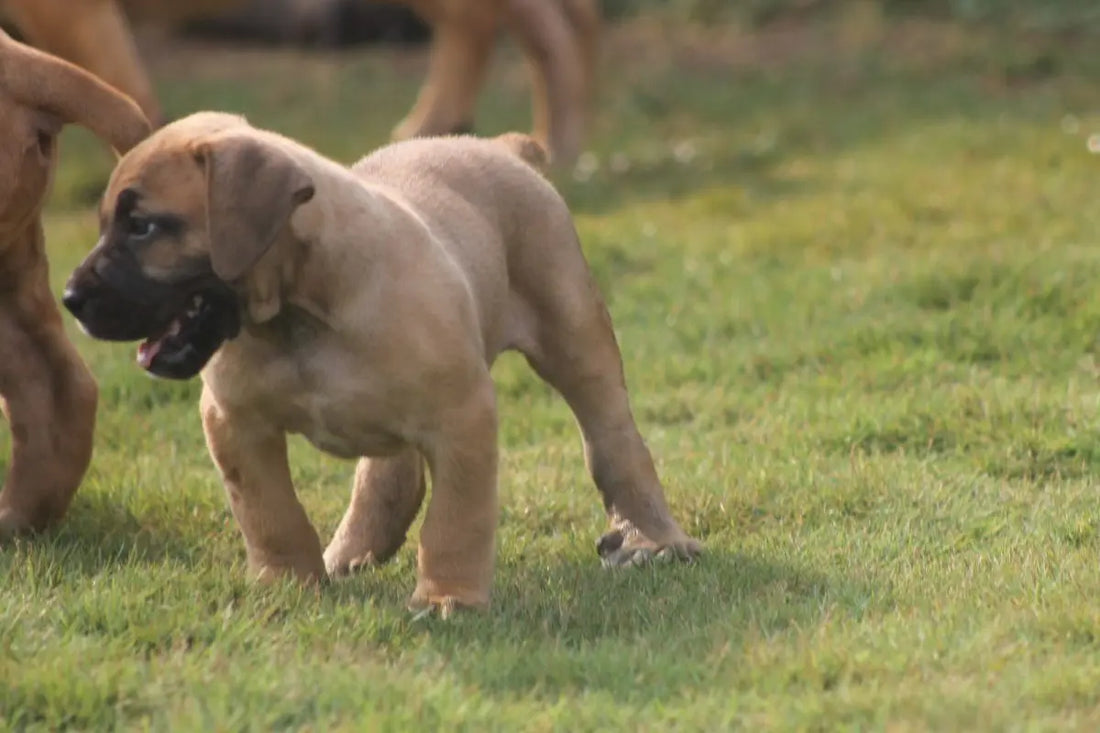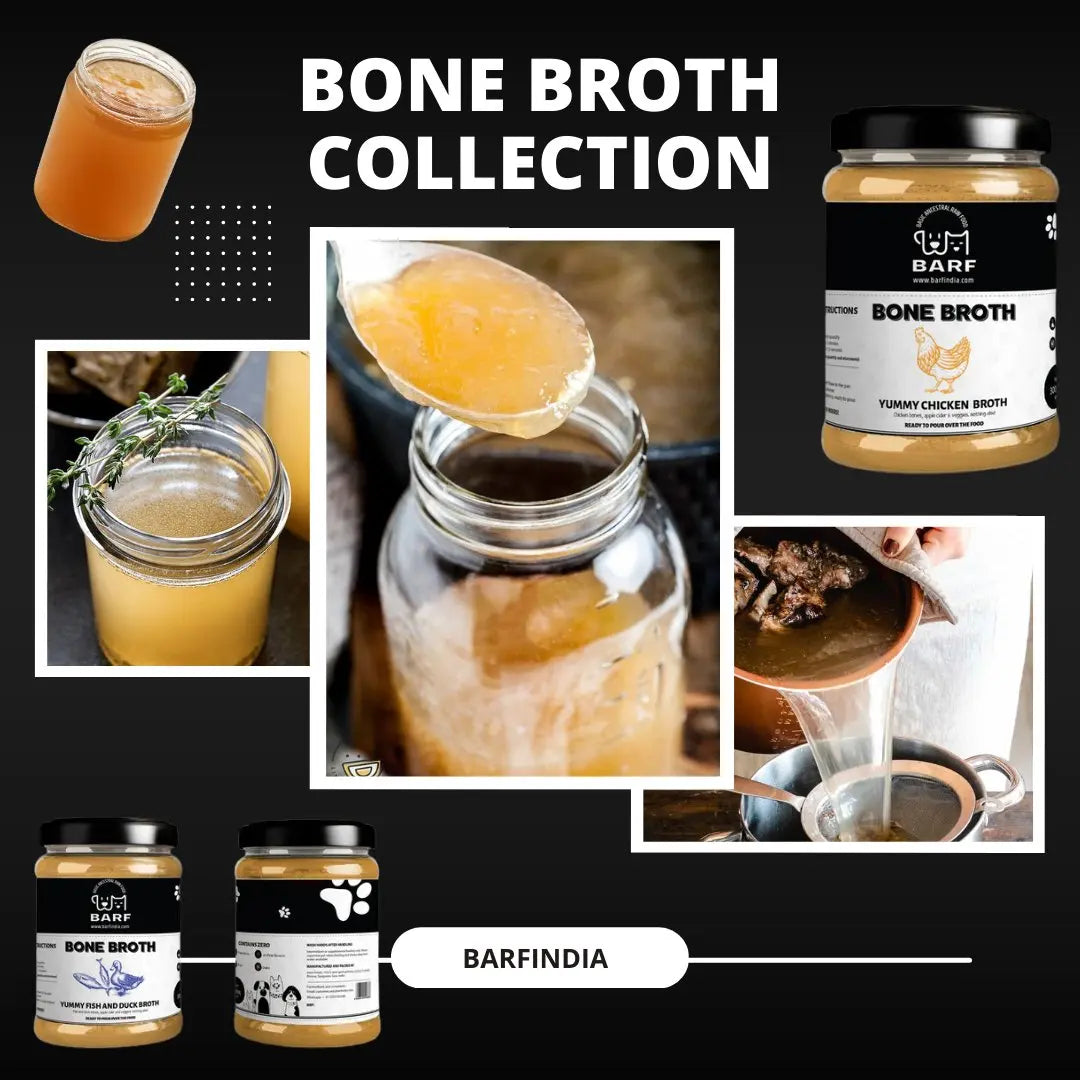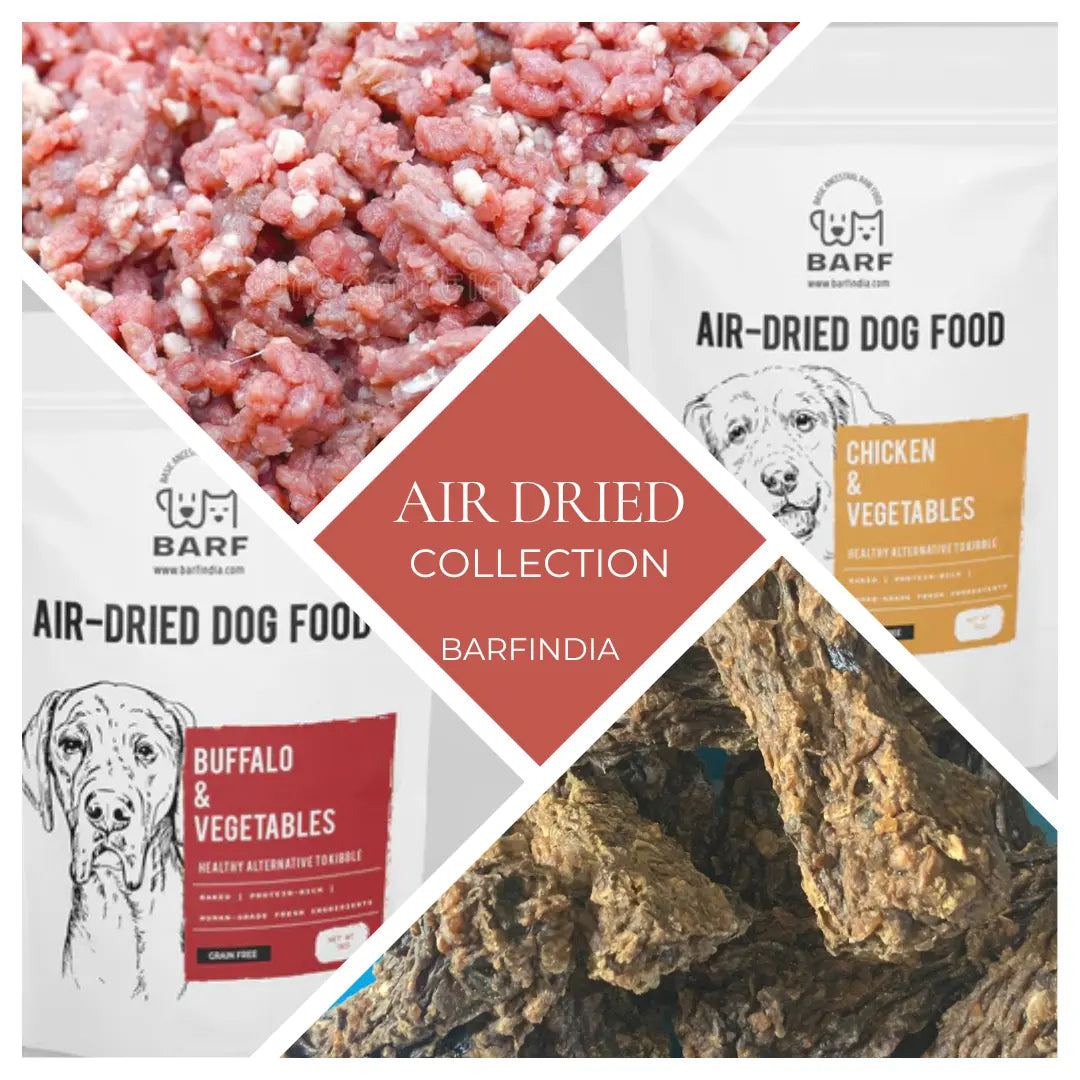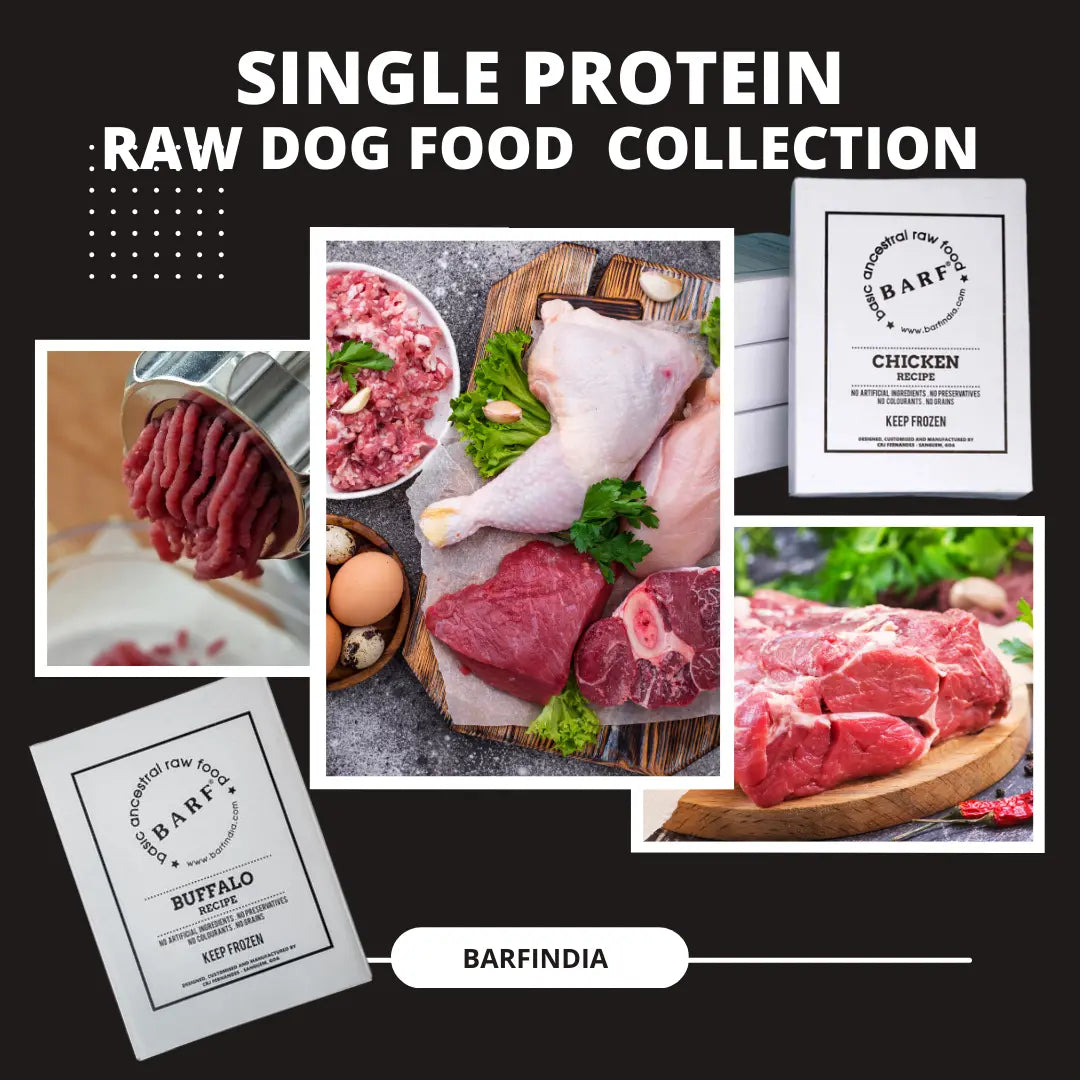
Should I be fasting my dog?
B.A.R.F. India AdministratorShould I be fasting my dog?
In my life spanning dog owner, dog caretaker and now dog food maker, I’ve often been asked the question: Should I be fasting my dogs? They’ve heard doing so has its share of benefits, but they’re not sure. And somehow the idea of not giving their furry pet a meal seems just cruel to them. Yes, I understand. But what if I told you that the benefits of making your dog fast far outweigh the guilt that you go through, at least the initial few days of it? There are physiological reasons your dog needs to fast, and as a responsible pet parent, it is our job to ensure that happens.  Read on, and understand the many crucial benefits of making your dog fast regularly.
Read on, and understand the many crucial benefits of making your dog fast regularly.
Why should you consider fasting your dog?
If your dog is constantly eating and digesting food, its immune system does not get a chance or the resources to look after itself. When you regularly fast your dog, you are essentially giving the immune system a break – a chance to breathe easy, detoxify the years of toxic build-up and restore balance. How can there be a toxic build-up, you wonder? Whether you feed processed, packaged food, or carefully prepared home-cooked meals, your dog will be ingesting toxins in some form or the other.  With chemicals and pesticides having found their way into all that we eat, our furry pet is not exempt from those either. In fact, the exposure is more if the main diet consists of kibble. The number of artificial ingredients, preservatives, and chemicals that the dog food industry puts into those bags would horrify you if you looked at the list of ingredients carefully. Whatever the diet, your dog’s immune system needs periodic cleaning. And if it is busy digesting all the time, it has no time to repair or heal itself. The result?An increase in autoimmune disorders, including food and skin allergies, irritable bowel syndrome, yeast overgrowth, arthritis, liver disease and even cancer.
With chemicals and pesticides having found their way into all that we eat, our furry pet is not exempt from those either. In fact, the exposure is more if the main diet consists of kibble. The number of artificial ingredients, preservatives, and chemicals that the dog food industry puts into those bags would horrify you if you looked at the list of ingredients carefully. Whatever the diet, your dog’s immune system needs periodic cleaning. And if it is busy digesting all the time, it has no time to repair or heal itself. The result?An increase in autoimmune disorders, including food and skin allergies, irritable bowel syndrome, yeast overgrowth, arthritis, liver disease and even cancer.
Your dog is essentially a wild animal
Don’t get me wrong, but our dogs are genetically very similar to dogs in the wild. And how do they deal with food? For starters, dogs in the wild don’t get to eat every day, so there is natural fasting. “But I want to make sure my dog is well-fed and healthy”, you say. And by fasting your dog regularly, you will be doing just that. Consider this situation: what if you had to work every day, all days of the week, month after month, without taking a break for the weekend or even a vacation. You would burn out, you will get irritable and your productivity will suffer, and the stress will make you fall ill.  When we do the same to the digestive system – ours or our pets –making it work round the clock, it burns out, and the effect is seen in the form of diseases that I highlighted earlier. When the body fasts, it gives the digestive system a chance to go on a holiday, of sorts. It gets a chance to heal (like reducing inflammation, etc.) which it cannot do while it is focused on digesting food. The immune system can check itself for free radical damage and reduce cancer cell formation. If your pet was living in the wild, and it fell sick, it would stop eating, even for days, to reduce stress on the system and to give the body a chance to fully recover. We, with our well-intentioned love, have
When we do the same to the digestive system – ours or our pets –making it work round the clock, it burns out, and the effect is seen in the form of diseases that I highlighted earlier. When the body fasts, it gives the digestive system a chance to go on a holiday, of sorts. It gets a chance to heal (like reducing inflammation, etc.) which it cannot do while it is focused on digesting food. The immune system can check itself for free radical damage and reduce cancer cell formation. If your pet was living in the wild, and it fell sick, it would stop eating, even for days, to reduce stress on the system and to give the body a chance to fully recover. We, with our well-intentioned love, have
How Should I go around in fasting my dog?
The question that arises now is how and how often you should fast your dog. Is your dog on a species-appropriate, raw diet? I would recommend fasting only if your dog is accustomed to its natural food and not consuming kibble on a regular basis. (You can read more about this at the end of the article.) If your dog is raw-fed, then you are already on the right track. You will need to experiment and bit and find out a fasting rhythm that works for your pet.  If you feed your dog twice a day, you can start by feeding him once, but give him the food that he could consume throughout the day in that one meal. There could be a slight detox response to this, like vomiting or diarrhea. Let him settle and then repeat the changed feeding pattern. Once the dog is accustomed to this, you can feed him every alternate day. You must make sure that the food you give before fasting is enough to last them until the next meal. Do not reduce quantity. Another rhythm to follow is to let him eat as much as he wants in one meal (he will eventually stop, don’t worry) and then don’t feed him until his belly is back to normal. Never let your dog go without food for more than two days at a stretch. Experiment until you find the right rhythm for you and your dog.
If you feed your dog twice a day, you can start by feeding him once, but give him the food that he could consume throughout the day in that one meal. There could be a slight detox response to this, like vomiting or diarrhea. Let him settle and then repeat the changed feeding pattern. Once the dog is accustomed to this, you can feed him every alternate day. You must make sure that the food you give before fasting is enough to last them until the next meal. Do not reduce quantity. Another rhythm to follow is to let him eat as much as he wants in one meal (he will eventually stop, don’t worry) and then don’t feed him until his belly is back to normal. Never let your dog go without food for more than two days at a stretch. Experiment until you find the right rhythm for you and your dog.
Will my dog be able to adjust to fasting?
Our dogs are smarter than we give them credit for. A dog’s natural behavior is to fast intermittently. In a few days, your dog will be used to getting food with gaps thrown in. I know of dogs who participate in competitions that are fasted, and they are better performers for that.  What about exercise? For the first few days, cut down on vigorous activity. Don’t get into heavy running or energetic games while your dog is getting used to the new rhythm. Some dogs are more energetic since they are not busy digesting food, while some are more interested in taking it slow. Let your dog tell you what he wants to do. Keep an eye on his activity levels and choose the exercise pattern accordingly. Points to remember: Make sure he has plenty of water and only fast adult dogs: puppies need a much more regular source of nutrition. If you are new to the idea, first make sure to transition your dog to a balanced, species-appropriate raw food diet and then introduce fasting as a way to keep him healthy, balanced and thriving.
What about exercise? For the first few days, cut down on vigorous activity. Don’t get into heavy running or energetic games while your dog is getting used to the new rhythm. Some dogs are more energetic since they are not busy digesting food, while some are more interested in taking it slow. Let your dog tell you what he wants to do. Keep an eye on his activity levels and choose the exercise pattern accordingly. Points to remember: Make sure he has plenty of water and only fast adult dogs: puppies need a much more regular source of nutrition. If you are new to the idea, first make sure to transition your dog to a balanced, species-appropriate raw food diet and then introduce fasting as a way to keep him healthy, balanced and thriving.
Have you given thought to BARF – Basic Ancestral Raw Food?
The best way to help your dog’s immune system is to feed it a
. And the best option is raw. A part of the wolf family (yes, even your sweet Lab or lap-sized Apso), your dog needs and will thrive only on a raw diet. Raw food is a natural food and it contains the exact mix of all the nutrients and goodness that a dog would get if it were a wild creature. More importantly, it doesn’t have any of low-quality protein that is not good for your dog. You can make your own raw food in the right proportion, or you can buy commercially prepared raw food for your diet. Whatever you do, eliminate or limit the number of grains and carbohydrates in your dog’s diet. And watch your furry companion thrive.




